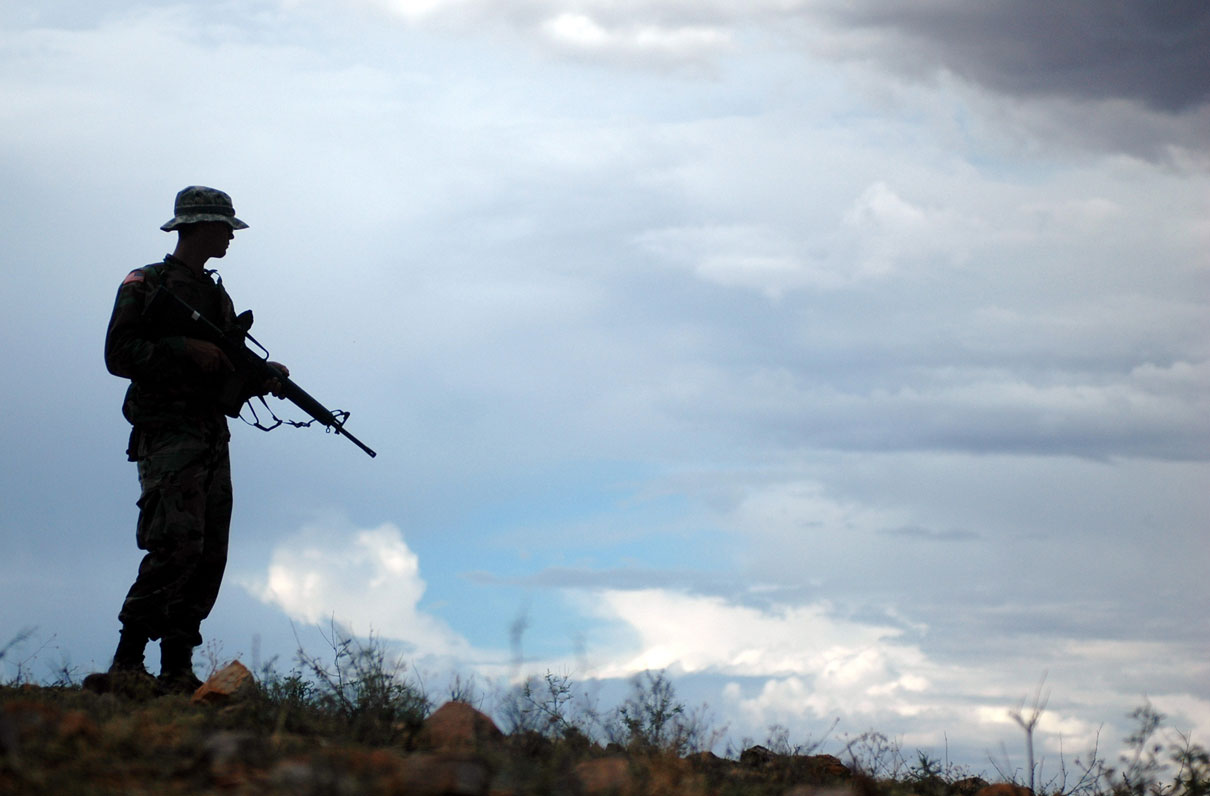April 9, 2018
The National Guard Bureau and Department of Homeland Security are working out details about the role thousands of Guardsmen will play on the U.S.-Mexico border following President Trump's announcement that they'll provide support services there until a wall is built.
Trump is the third president to send U.S. military personnel to the Southwest border - President Obama sent them in 2010 and President Bush from 2006 to 2008. But Guardsmen are being tasked for this mission after years of overseas deployments in support of Iraq and Afghanistan. That's marked the highest activation of the National Guard since World War II at the same time they carry out vital missions at home in support of disaster relief missions like hurricanes and floods.
There is no doubt Guardsmen from California, Arizona, New Mexico, and Texas will do an outstanding job, the impact this additional mission will have on other aspects of their lives should be considered by the Administration and by Congress. Many maintain civilian careers, and their local communities depend on them being able to do so.
Finding the right balance of operational time and non-operational time is vital to ensuring recruiting and retention do not suffer because individuals simply can't balance a civilian career with the demands of the Guard. This point was made in a 2012 Government Accountability Office report about Operations Jump Start and Phalanx. I think it is just as true today.
Homeland Security officials said, while they have some initial recommendations about how the National Guard may assist on the border, they'll take into consideration the inputs from governors and border agents on the ground. It's still unclear whether only Guardsmen from border states will be activated, or if it will affect units from across the country.
The president's memo about the mission states that the Guardsmen will be on Title 32 orders under a memorandum of understanding between the president and the governors. Importantly, National Guard forces operating under the authority of Title 32 section 502(f) are exempt from the Posse Comitatus Act, which otherwise would prohibit the President from using military forces for domestic law enforcement activities.
This authority allows governors - with approval from the president or defense secretary - to order a National Guard member to duty for operational homeland-defense activities. The federal government then foots that bill. This status is sometimes referred to as National Guard Active Duty.
Despite this exception, Homeland Security Secretary Kirstjen Nielsen has asked Congress to “work with her” to change laws that hamstring National Guard troops against drug interdiction and conducting apprehensions, characterizing them as “unintended loopholes.”
Trump administration officials say that, for now, they intend to use Guardsmen for support activities only, as they were used during Operations Jump Start and Phalanx under Bush and Obama. That could include air support, medical care for detainees, and fleet maintenance (mechanics) in order to free up border patrol agents to enforce the laws.
It appears the legal authority to perform these border missions already exists in the exceptions to the Posse Comitatus Act, so it will be interesting to see what changes the head of Homeland Secretary proposes Congress make. Previous decisions to bar Guardsmen from making arrests or performing drug interdiction were made by the Defense Department, and could be changed without an act of Congress. Secretary Nielsen may be hinting that she will be asking Congress for additional exemptions to the Posse Comitatus Act under other mission authorities.
While activated under Title 32, Guardsmen will be eligible for legal protections provided by the Uniformed Servicemembers Employment and Reemployment Rights Act and the Servicemembers Civil Relief Act. Those on active duty for 30 days or more also qualify for TRICARE and Servicemembers' Group Life Insurance. It is possible that, depending upon the length and nature of this mission, however, that Congress will need to consider additional legislation to ensure Guardsmen are not unduly impacted in their civilian careers or that their families are not without resources to sustain their needs during these times.
Above photo: A National Guardsman stands watch on a ridge above Nogales, Ariz., at the Mexico border. (Sgt. Jim Greenhill/National Guard)
